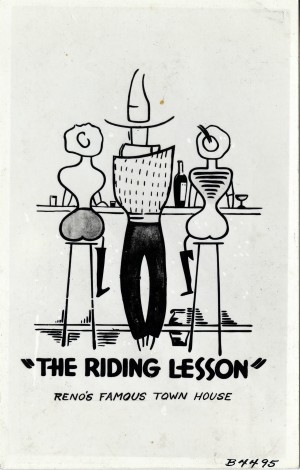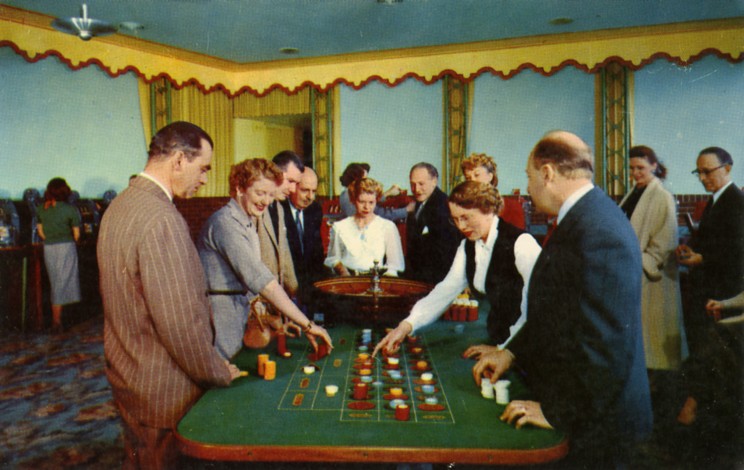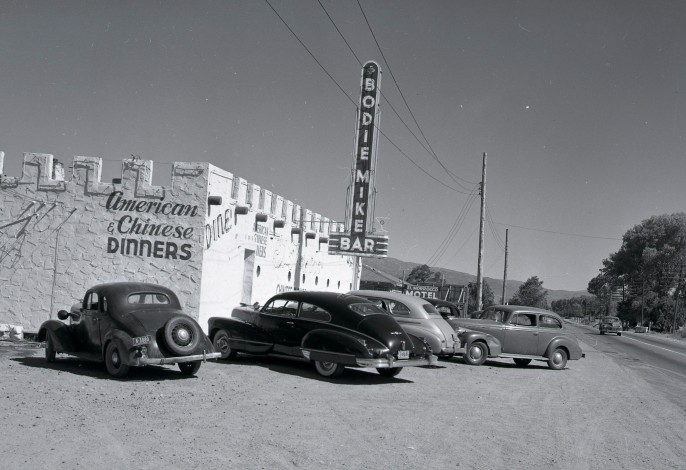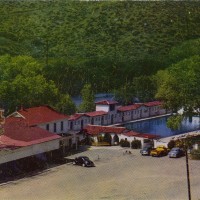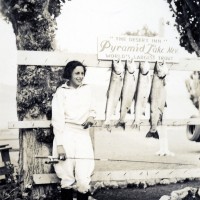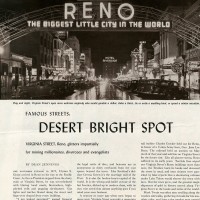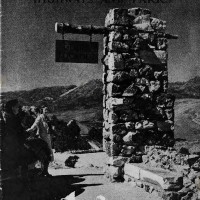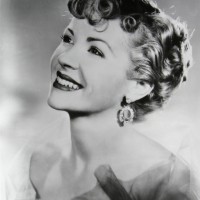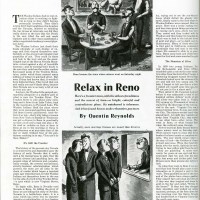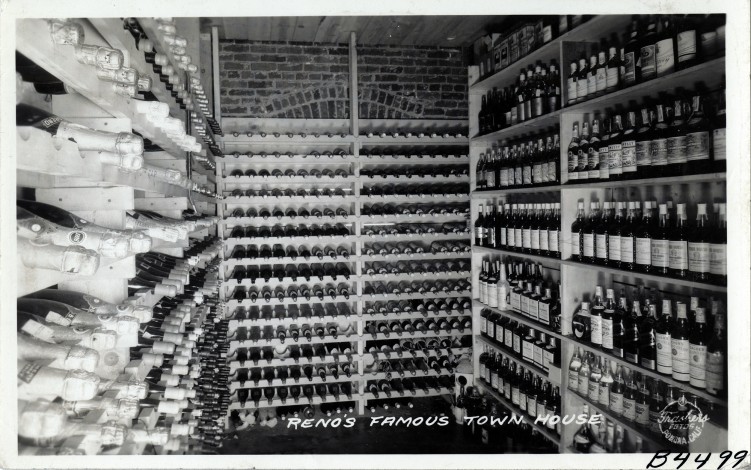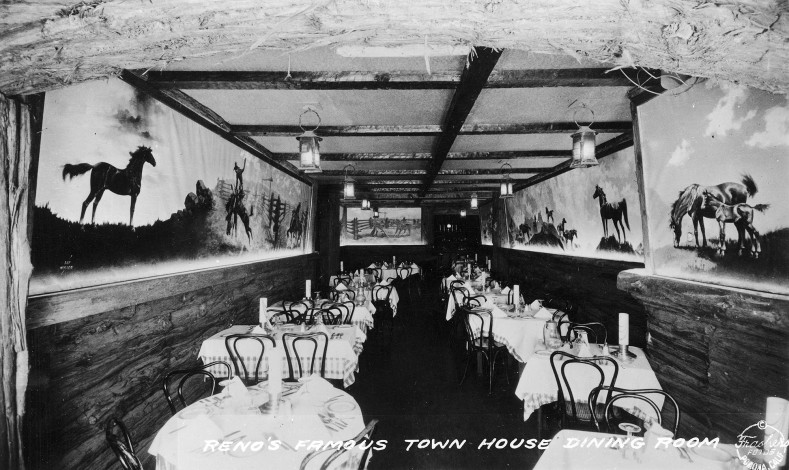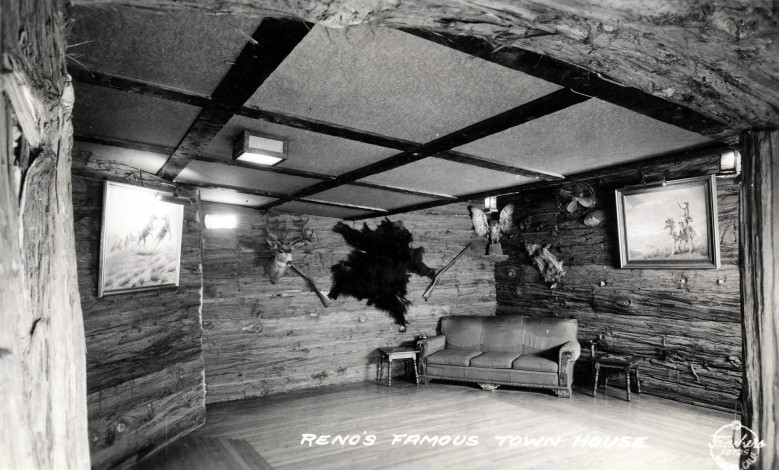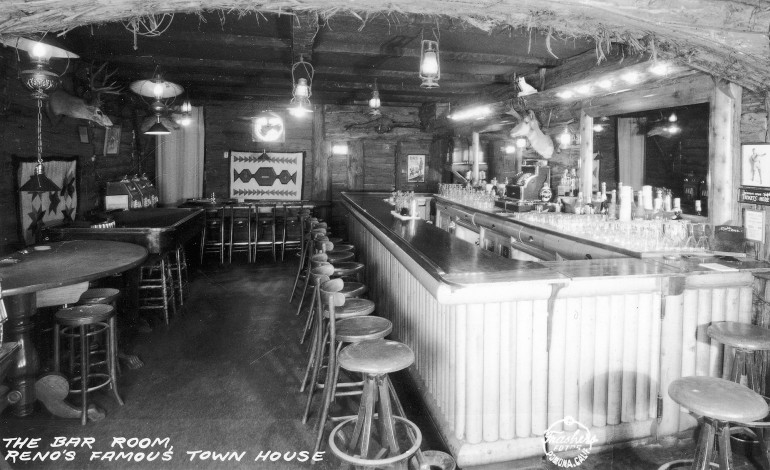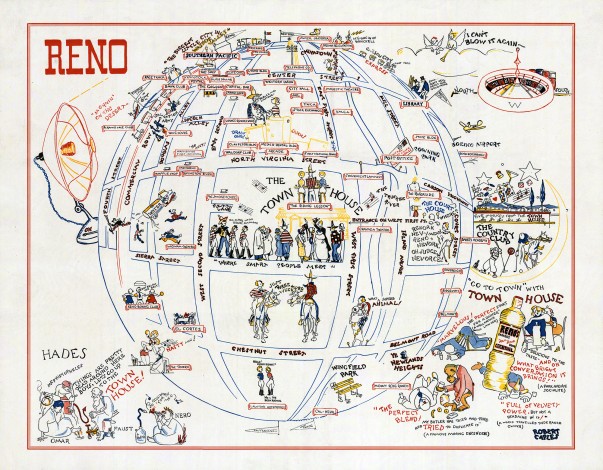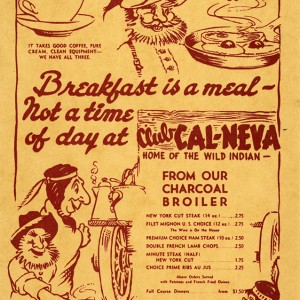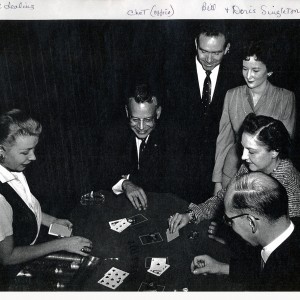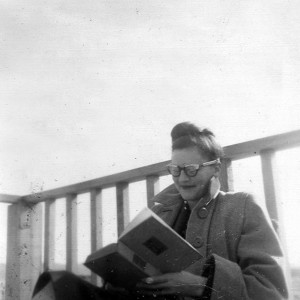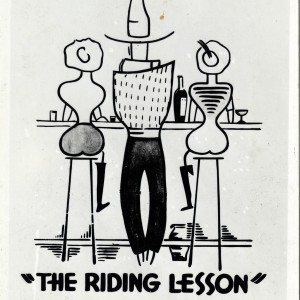Someone once said: “If you can’t do it at home, go to Reno.” To many outsiders, Reno was “sin city,” where people behaved in ways they would never consider doing at home. And it certainly was true that Reno offered a variety of nighttime entertainment to rival the most cosmopolitan of American cities. The Willows, the Tavern, the Poodle Dog, the Dog House, the Town House, the Country Club, and the Trocadero Room at the El Cortez were swanky, sophisticated spots offering dining, drinking, dancing, and live entertainment.
When gambling was re-legalized in 1931 and after the repeal of Prohibition in 1933, the gambling spots expanded to include supper clubs and showrooms. On the outskirts of town, roadhouses and clubs like the West Indies, Eugene’s, and the Big Hat offered convenient entertainment for those staying at area guest ranches. For those with a sporting taste, the Reno racetrack was a popular recreational activity.
Romantic entanglements were also an undeniable part of the mix. A time of heightened emotion spent in a strange location far from home bred all varieties of relationships, both casual and enduring. The stereotype of the Reno gigolo, catering to the lonely women of the colony, was balanced by tales of genuine romance leading to marriage.
Despite its sin city reputation, Reno also offered a multitude of wholesome avenues for divorce-seekers to entertain themselves. Temporary residents were welcome to join bridge groups and other social clubs. Sightseeing was particularly popular with destinations such as Virginia City, Pyramid Lake, Lake Tahoe, and the open country surrounding Reno. Horse-back riding, fishing, hiking, and skiing in the winter were available as well.
With a 23-hour window each day, some divorce-seekers opted to make whirlwind trips to California. Private drivers, taxi cab companies, and bus lines would meet a divorce-seeker’s time schedule to ensure that he or she returned in time to be seen by the resident witness. In later years, a short hop on an airplane allowed for a quick escape.
Featured Resources
The Town House
The popular Town House nightclub not only appealed to Reno’s divorce colony; it took them as inspiration. Originally referred to as the “Dude Ranch Town House,” the club’s longtime cartoon logo depicted two women on bar stools, viewed from behind, with a bowlegged cowboy standing between them and “The Riding Lesson” written underneath.
The successful combination restaurant, bar, and gaming floor operated at 39 West First Street in downtown Reno from 1932 to 1955. Touting western hospitality along with nightly dancing, early advertisements read, “You may have your country home, but make this your Town House.”
Inside, the theme was simultaneously rustic and luxurious. Patrons dined on French cuisine while surrounded by an exaggerated version of western décor. Mounted deer heads and paintings of horses hung over rough hewn plank walls in the club’s bar and dining rooms.
The Town House flourished through the early 1950s, burning down in a suspicious fire in 1955. A J.C. Penney store was constructed in its place and operated for more than twenty years.
